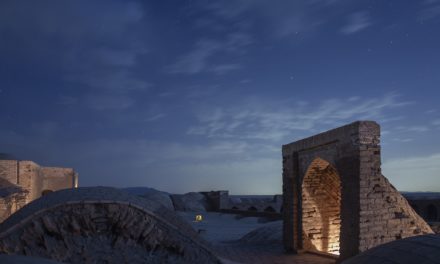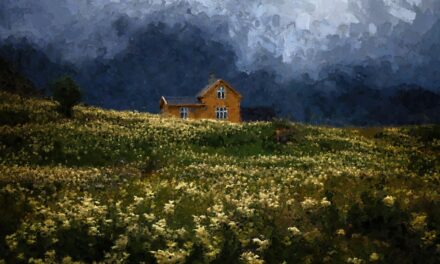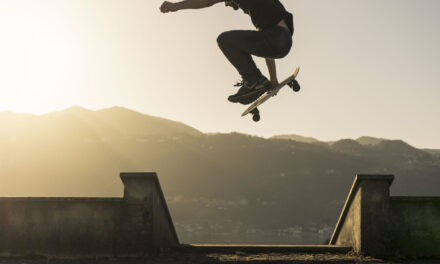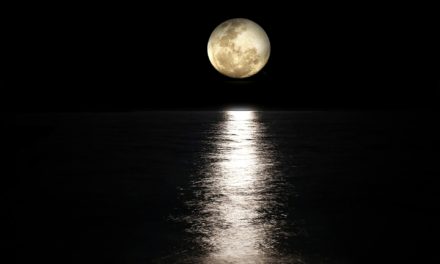After ten years as a busy religious missionary priest in Africa, three of them during a civil war, when I was stood up to be shot, I was driven by an internal compulsion to spend some time in silence, prayer, and solitude. It was not something I wanted; it was an urge, something I needed to do, something I knew I must do. Not knowing where it would lead or for how long, although I imagined it would be for a week or two at the most, I asked my Father Superior for permission, then wrote to the Abbott of a Trappist monastery in Portglenone, Northern Ireland. I asked if I could become an ‘instant monk’ and spend some time living with the community. They kindly agreed, and Father Jim, the novice master, was assigned as my mentor and guide.
It was relatively easy fitting in, with the day neatly divided into three parts: prayer/study, work, and sleep. It took a little time for my body, however, to adjust to its new regimen, especially going to bed at 8:00 PM and rising at 2:45 AM for prayers at 3:00! Even the vegetarian diet didn’t bother me. After my time in Africa, where food was often scarce, and I could only rarely get meat, meals didn’t rate highly on my list of priorities.
It was a life well organized and controlled by the sound of a bell. The more deeply I entered into its spirit and rhythm, and even as I learned a little of the Trappist sign language since the monks rarely spoke, instead of bringing me silence and solitude, the busyness of the monastery felt noisy. My spirit was calling for something else.
The monastery was situated on three hundred acres of mainly pastureland where Brother Colum managed a herd of hundreds of beef cattle, a primary source of revenue. It housed thirty-eight monks and a hermit who lived in a small twenty-foot caravan hidden in a wood. I’d seen Father Kevin when he arrived each Sunday to celebrate Mass with us and share the main meal, albeit in silence. I learned from Father Jim, who he was, that he’d been a hermit for about seventeen years.
I knew I needed a spiritual guide, so asked the Abbot if I could visit Kevin and ask him to help me. “You can certainly try, Michael, but it’s highly unlikely he will agree. He has always refused such requests.”
A tall, bearded man, probably in his late forties, with a disarming smile, he was skinny and tanned from working outdoors. He looked surprised as he opened the door. His piercing gray eyes looked right through me.
“Come on in,” he said softly, then added almost apologetically, “I only have one chair, so what if we both sit on the floor? The place was sparsely furnished but orderly and very clean. “I saw you in the cloister a few weeks ago and wondered who you were,” he murmured.
I wasn’t sure how to begin, but after introducing myself, I explained why I’d come to the monastery, had no idea how long I would stay, and that a spiritual hunger was drawing me deeper into a world of silence and reflection. I was there for over an hour and did most of the talking. Kevin listened.
“Why don’t we pray together for a while,” he said and, without waiting for me to answer, moved over to the end of the room, where he had a small altar with a tabernacle in the center covered in colorful Gaelic designs. He squatted on the floor in front of it, and I sat beside him. I’ve no idea how long we prayed in silence since neither of us was wearing a watch; I’d decided to remove mine the day I arrived. The monastery bell rang in the steeple, and we both knew the choir monks would be going to the chapel to recite their short midafternoon prayers. Kevin got up to retrieve his prayer book, and together we shared and recited the psalms.
“Michael,” he said, “I think the Holy Spirit is telling you something, and you need to respond. I suggest you ask the Abbot if you can use the small hermitage down near the river for some time and see where the Lord leads you. I feel certain your vocation is not that of a hermit; however, but just like the Lord, you may be called for forty days into the desert.”
I was shocked. “But even if he approves, I’m sure he’ll want some assurance that I meet with a spiritual director regularly. What should I say? You’re the only person I’ve spoken to. Will you be my guide?”
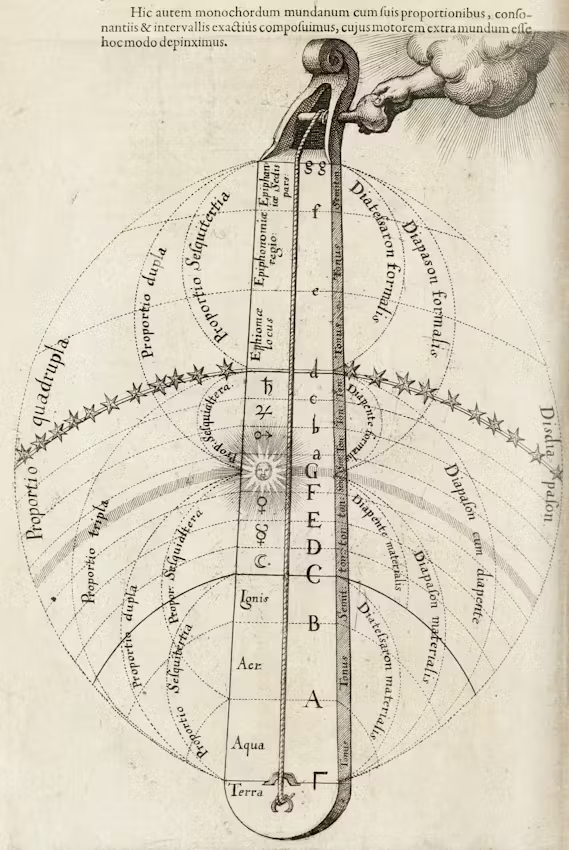
There was a long pause. Then Kevin, speaking hesitantly, replied, “First of all, Michael, I’ve nothing to offer you; I too am searching. Tell him if he agrees, we will meet and pray together for an hour each week?”
Fr. Jim showed me where in the monastery I could get and replenish my stock of food and materials for Mass. Armed with a small library of books (I was interested in Eastern Orthodox spirituality and fully intended to do some research), several notebooks, a collection of spiritual and educational CDs, a stack of magazines, and of course, a few sets of clothing, I headed out across the fields to my hermitage.
It was very basic, a small wooden twelve by ten feet shed with a tiny window, a one-ring gas burner for cooking, a simple wooden table with two shelves, a small electric lamp, a chair, and a wooden bunk bed. There was also an outlet where I could plug in my CD player. In one corner were three narrow shelves where I could keep my clothes, and on the wall a series of hooks for my working clothes and religious habit. Situated fifty feet from the River Bann, in the heat of summer, I was sometimes able to take an evening swim instead of going for a shower.
I divided my day in the traditional way: prayer (meditation/spiritual reading/religious study), manual work, and sleep. Since I could hear the monastery bells throughout the day, I always knew what time it was. The bells were only silenced during the night so as not to disturb the surrounding villages when an interior one was used for awakening the community. I borrowed a small alarm clock so I, too, could get up for the first prayer of the day. However, since I went to bed an hour later than the community, I also rose an hour later at 3:45 AM. then spent time in prayer, in meditation. After celebrating Mass on my own at 7:00 AM, and a light breakfast, I began my manual work.
Every night, once the monks had retired, I walked to the monastery, took a shower, and replenished any needed supplies. Once a week, I also did my laundry. The monastery was extremely modern and had many conveniences. An hour later, I, too, was in bed.
My day varied very little and was basically sleep, 7 hours; prayer/study, 8 hours; manual labor, 7 hours and 2 hours for preparing food, meals, and showering. There were two significant changes each week. Every Friday, I met with Father Kevin for an hour. On Sunday, the Abbot asked all hermits to attend the community Mass and join in the silent community midday meal. With no manual work that day, I wrote letters and spent more time in prayer and study.
I ate twice a day, my main meal was a hearty soup since I always had vegetables, and drank black tea or water.
I had arranged with Brother Colum, who ran the farm to give me work. That translated into cleaning ditches, seemingly by the mile, trimming and laying hedges, repairing fences, building new ones, installing fence posts, planting trees, scything weeds, and any other work he required. There was a ‘mailbox’ at the entrance to the meadow leading to my hermitage, which I was required to check each day where I could receive messages and where Colum could leave work instructions and tools if needed.
There was no insulation in the hut, and often at night, it could get bitterly cold. I ended up not just needing extra blankets, but later switched to a thermal sleeping bag and slept wearing two tee shirts and a sweatsuit. In the winter, it got close to freezing, so in the morning, I lit the gas ring to warm up the hut, which it did very quickly, just so I could function. It’s difficult to pray or meditate if you’re cold and uncomfortable! After my years in Africa, my body was simply not attuned to the Irish seasons or the vagaries of the weather. Working outside was never a problem, since we all had a heavy parka, a beanie, and thick gloves. I didn’t mind the rain, but if it became torrential, I retreated inside, using the time to study and write.
My first few days enabled me to establish what I thought was an efficient yet simple rhythm of life. Preparing my food each day, which I intended to stretch for both meals, took a little longer than anticipated, and I realized I needed to plan what I would eat for the week. It was early February and the leafless trees starkly gray in their winter nakedness and the tilled land, often covered with hard frost, created an ascetic sense of peace and calm. I enjoyed the quiet and solitude and went to bed each day tired but content.
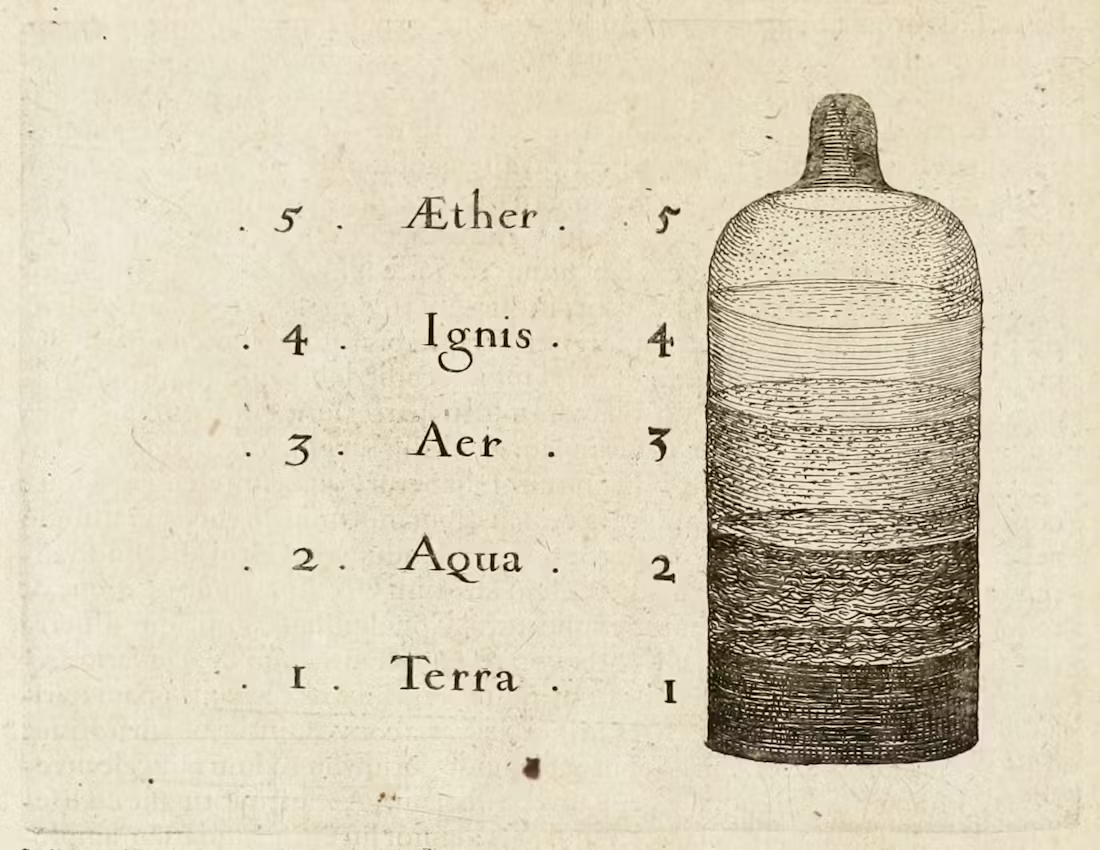
It was on day six that it happened. I was walking in a field, trying to pray the rosary, when my head seemed to explode with noise and distractions. It was almost impossible to concentrate. Gone was my newly found peace and tranquility. My head felt like a busy railway station. I was bombarded with thoughts, images, and all kinds of distractions, both holy and profane. Intuitively, I knew what it was and what I must do. Gathering up my library of books, CDs, magazines, and articles that I thought I needed, in fact, anything that was non-essential, I threw them into my rucksack and later dumped them in my cell in the monastery. I kept just two books for spiritual reading, New Seeds of Contemplation written by the Trappist monk Thomas Merton. The other a French edition of Jean Pierre de Caussade’s, L’Abandon à la Providence Divine (Abandonment to Divine Providence), which, although written in the eighteenth century, had made such an impression on me when I was a novice so many years previously.
I shared my experience with Father Kevin, who just nodded and said, “God calls us to silence and solitude, and we want to fill that precious time with noise and distraction, albeit seemingly religious and holy things.” Then he quoted Merton, “Every one of us is shadowed by an illusory person: a false self. This is the man I want myself to be, but who cannot exist because God does not know anything about him. To be unknown of God is altogether too much privacy.”
As my prayer life deepened, so did my self-awareness. I was extremely conscious of the presence of God in my life while realizing my body, mind, and emotions were pulled in a different direction. Whether it was craving food when I wasn’t hungry, my body asking for sleep when I wasn’t tired, or an interior voice urging me to cut down on my meditation and prayer time because of distractions, I felt like two different people. There were times when I questioned what I was doing, when doubts filled my head, and I wondered if I was just playing at being a hermit.
Father Kevin gave me the perspective I needed. “We’re not very good at recognizing illusions, least of all the ones we cherish about ourselves. Contemplation is not and cannot be a function of this external self.” Praying together, I bared my soul, and he gently guided me: “Prayer and love are learned in the hour when prayer becomes impossible, and the heart has turned to stone,” he said one day as we discussed contemplation. And in helping me understand my call to the hermitage, he explained, “In silence, God ceases to be an object and becomes an experience.”
Those words turned out to be prophetic.
But another change was also taking place. Days were turning into weeks and weeks into months. With no expectations, no future plans, and simply trying to live each day, I just knew I was in the right place.
And then something happened. I don’t know the exact time since I had no watch, but I remember the month and the day and that it was in the evening since I later recorded the experience in my journal. I recorded it because I knew that such an experience could not last and that, over time, my memory would become hazy.
It was raining. It was a cold, blustery March night. I was trudging back to my hermitage after my shower. I was tired, the manual work had been particularly demanding, and my body was craving sleep. With my parka zipped up to my chin, my hoodie pulled on tight, and my backpack slung over my shoulder, I leaned into the driving rain. I can’t remember what was going on in my head, whether I was just daydreaming, trying to pray, or just grumbling to myself about the weather when it happened. An interior voice as clear as if the person was next to me simply said, “I am with you, Michael.”
I stopped, and straightened up, oblivious to where I actually was physically but riveted by the sense and experience of this somebody, someone around me, next to me. I knew intuitively who it was. It was an old friend I had spoken to for years, but as if from a distance, and now He was here. I instinctively knew it; I could feel His presence. He was real.
“Jesus” I replied.
I have no idea how long I stood there in the pouring rain. I was filled with a sense of peace, calm, and presence that I had never before experienced. Tears of joy mingled with the rain streaming down my face. Back at the hermitage and into some dry clothes, I just wanted to revel in the radiated warmth of His presence. There was less sleep than usual that night; I kneeled using my prayer stool, transfixed. Meditation became contemplation as I basked in the sunshine of God’s Spirit. I didn’t need any words, scripture, or spiritual reading to begin my prayer to help lead me into His presence. I did not want to leave. But eventually, my body took over. I was exhausted and went to bed, wondering if this extraordinary spiritual experience would be gone by morning.
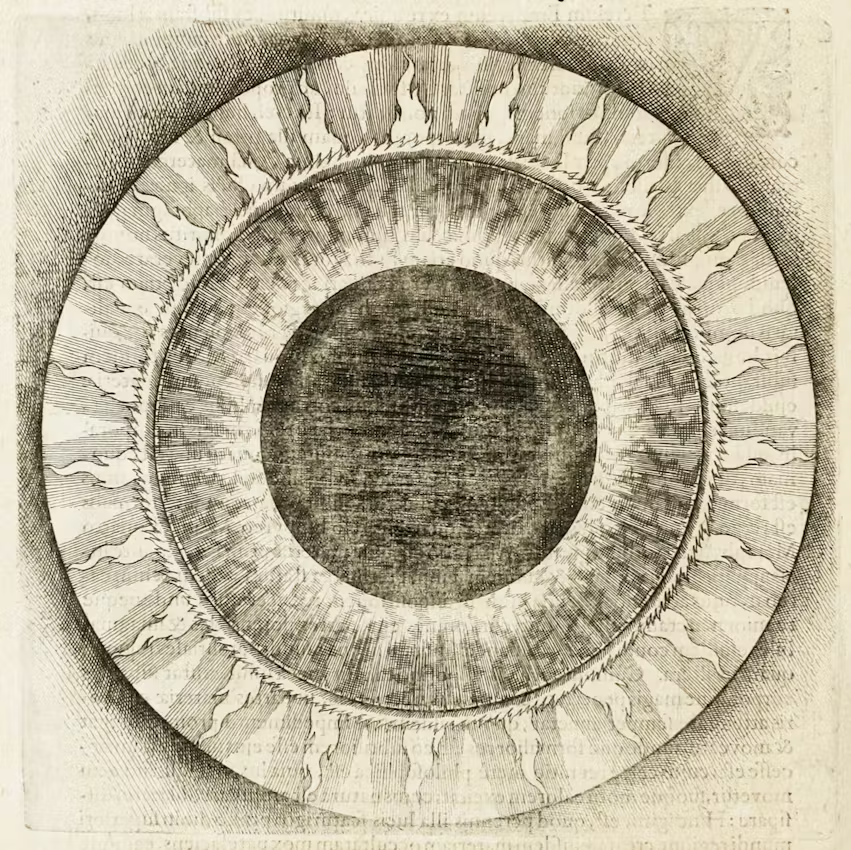
I tried to follow my usual routine, but it had all changed; the experience of my prayer time and celebrating the Eucharist were so very different. I was simply aware of a presence that radiated love, and it seemed almost to be within me, to envelop me. I didn’t want to do anything other than use my prayer stool; I no longer needed my faith. God was real. God was an experience.
As I started my manual labor that day, clearing several ditches that had been blocked by the previous storm, I only had to pause for a second to be reassured I was not alone. At one point in the afternoon, still working on removing fallen limbs and debris, a voice seemed to say, “Stop what you’re doing. I want to talk to you.” So, I stopped and walked slowly up and down alongside the hedgerow, back and forth for what seemed like half an hour, locked in His presence. We were beyond words. My heart felt it as if it was ready to burst with His love, the two of us simply connecting, becoming one. Only the monastery bell brought me back to earth, and I needed to follow my schedule and fix my main meal of the day, although I did not feel hungry.
As I prepared my food, a niggling doubt began to enter my head. Am I having a psychological breakdown? Am I going out of my mind? Is this solitude getting to me? I really needed to talk with Kevin, but that would not be until the following afternoon.
“God works in mysterious ways; the Spirit breathes where HE will,” he counseled with his usual brevity. “Let’s just pray about it and come back in three days or before if you are troubled. Meanwhile, just follow your normal routine.”
I didn’t want to work, to do anything except spend time in contemplation, but I did what Kevin had suggested. “You are blessed with an experience of God, Michael, and it will change you forever if you allow it. It is powerful and vibrant, but it will not last. Only the Lord will show you when He will withdraw Himself, and then you will have to rely solely on your faith and your memories. That might happen in a day, a week, only He knows. And be assured, you are not going out of your mind!”
Mediation was without distractions, and my contemplative prayer was beyond words. All I could utter at times was a simple, “Jesus” or “Father,” but emotionally, I was filled with a deep experience of the love of God. Scripture became alive. My eyes were drawn to and lingered over the texts, “Do not be afraid, I am with you,” “My peace I give you,” and “I want you to be happy. There is no need to worry. If there is anything you need, pray for it, asking God for it with prayer and thanksgiving.”
As the seasons changed, so did my prayer life. For eight months, I was privileged to enjoy an extraordinary experience of God’s presence that was as real as the air I breathed and the land I walked on. But in the late fall, there was a subtle shift in my meditation, nothing dramatic, but a shift, nonetheless. I still enjoyed the stillness, quiet, and solitude of my hermitage, but my contemplation was no longer immediate, His presence no longer constantly felt as in the early days. I began to struggle again with distractions, but understood this was a return to normalcy. Now I really had to walk in and exercise the newfound faith I had been given. There was a new impetus, a call to share my experience, a call to help others. It was nothing sensational, just a gentle whisper at first, but an unmistakable voice, nonetheless. I listened to it for several weeks, then one Friday, after we had shared our prayer time, Father Kevin simply announced, “I think it’s time, Michael. The Spirit is calling you back to ministry.”
I’d been in the monastery and my hermitage for almost eleven months.
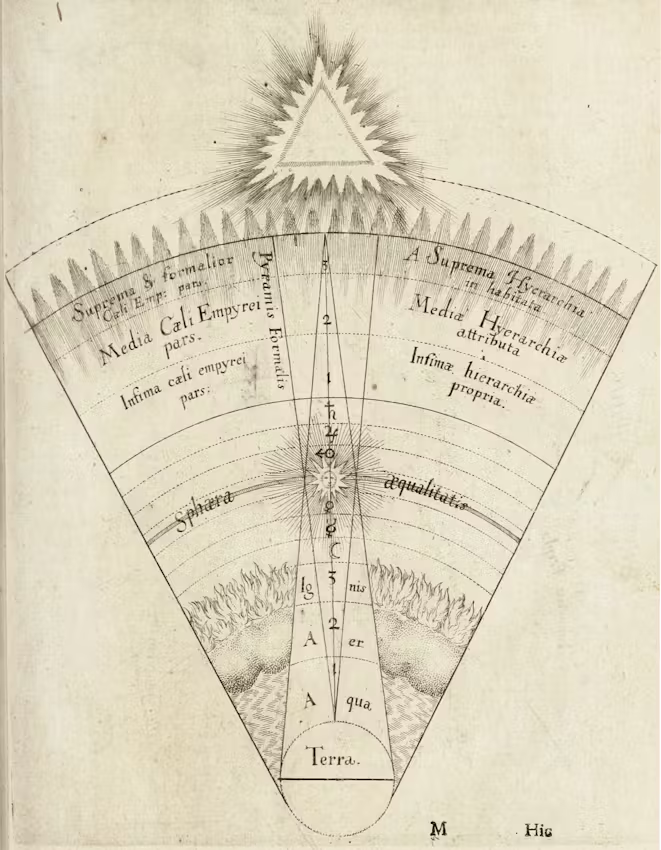
All images from Utriusque Cosmi . . . Historia by Robert Fludd, published in the early 1600’s


